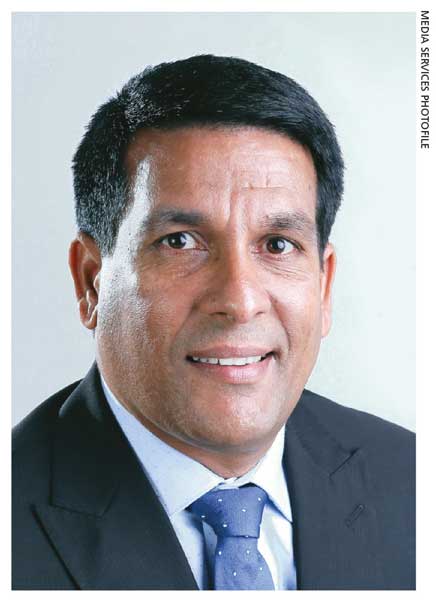MARKETING PROFESSION

TREND SEEKING INGENUITY
Susaan Bandara illustrates the value of keeping pace with present trends
Compiled by Yamini Sequeira
Q: How have marketing rules changed in the wake of the pandemic?
 A: The pandemic has most certainly challenged marketing. Marketing leadership had to come up with new and improved strategies to adapt to this tumultuous situation to preserve continuity in revenue growth through customer engagement.
A: The pandemic has most certainly challenged marketing. Marketing leadership had to come up with new and improved strategies to adapt to this tumultuous situation to preserve continuity in revenue growth through customer engagement.
While there was a shift from traditional to digital marketing, the impact of COVID-19 hastened the transformation process.
Yet, we should not undermine and discard the effectiveness of traditional marketing methods. The two mediums have their own strengths and need to be utilised properly. It’s not a matter of digital versus traditional but a hybrid of these two strategies.
Nonetheless, marketers have responded favourably to changing macro factors and are constantly altering their strategies to meet the needs of consumers whose buying patterns are ever evolving.
Q: The macroeconomic slowdown has affected all sectors and customers’ disposable incomes. How does this impact the marketing function?
A: The outbreak of the pandemic has affected both businesses and consumers alike.
Under these conditions, businesses would be cautious in their credit policies while attempting to recover dues. Additionally, receivables are being hit by the economic slowdown.
The pandemic will continue to affect businesses and consumer spending patterns this year. In this context, marketers are bound to face cautious consumer spending. As such, marketers should rethink their strategies to meet consumer needs by changing the product mix and other elements of their marketing tools that will offer value for money.
Although the common consensus is to contain costs, it’s important to support one’s brands while taking into consideration the dynamic needs of consumers in the long term.
Q: What makes for a successful marketer?
A: There are a few key factors to becoming a successful marketer – they’re not overtly complex but contribute greatly to one’s success.
Marketers need to focus on what they want to achieve. Instead of harping on past failures, they should be more focussed on their goals; they need to stay updated on current trends within the marketing sphere as well as keep an eye on real issues.
Additionally, a marketer should have people, operations, marketing (customer relations, sales, communications and responsiveness) and financial management skills. While the requirements of each position vary on the job spectrum, the aforementioned factors are what is expected from a skilful marketer.
Q: How do you perceive marketers’ contribution to recovery efforts this year?
A: Certain industries have been hit severely and therefore, marketers in those spheres may find it difficult to contribute to the recovery. In particular industries however, marketers are now more focussed on strengthening their strategies.
For example, the food sector has reevaluated its communication and distribution strategies to ensure that its revenue stream flows. Meanwhile, marketers have chosen to relaunch their products on different platforms to keep pace with present marketing trends.
To illustrate my point, if you take a financial product, certain ‘traditional products’ have been relaunched and offered on digital platforms with added features.
Even though some of these (digital) services were in operation earlier, they were not widely utilised by consumers who were comfortable with traditional transaction methods. Presently, while marketers have pushed the trend, consumers too are rapidly adapting to the changeover to digital. This applies to other sectors as well.
Furthermore, brand equity could be enhanced by responding to society’s needs. Consumers will always remember brands that behaved responsibly and speedily during a crisis.
Q: Marketing communications came to the forefront during the lockdowns. Could you provide a few examples?
A: At present, COVID-19 is one of the largest threats to companies and marketing globally. Nevertheless, marketers have shone through with their creativity and ingenuity.
In this scenario, it’s essential that brands reach out to their consumers proactively. As there is less physical interaction or fewer transactions between customers and products, the need for virtual portals (i.e. social media) has come to the fore.
The food sector and financial services are classic examples of how to reach consumers during stressful times. Essentially, marketers drove these services to the public by means of digital platforms.
Q: What is your view of the marketing profession in general – and how can it be enhanced?
A: There’s no place for complacency as marketing is an ever evolving profession. Customer expectations are eternally on the rise. Therefore, marketers need to keep pace with these changes through ingenuity.
For this creativity to sprout, the profession needs more skilled individuals. Marketing degrees available locally and internationally cater to up-and-coming marketers.
Marketers should be individuals who are constantly thinking of new ways to improve the profession. This is how it will flourish – i.e. with new and creative ideas coming into play.





Leave a comment